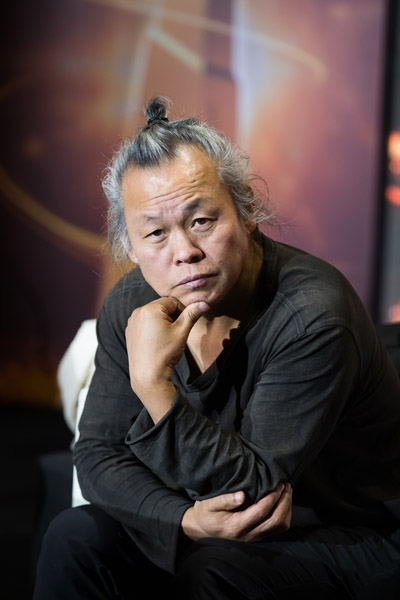Taking movies to the west


In 2015, Kim was invited to direct Who Is God?-a Chinese fantasy film. Production of this widely-expected work was halted over the THAAD issue.
But now he is optimistic about future cooperation.
"China and South Korea have had close cooperation in cinema for years," Kim says.
"If misunderstandings can be erased, we can work on more joint projects. With our efforts, Asia can become a booming hub for filmmaking in the world."
Kim was in Beijing on Tuesday to attend a news conference on Asian Brilliant Stars, a section of the upcoming Berlin International Film Festival in February, which is set to promote high-quality Asian cinema around the world.
He is on the jury for the section. It will be the second edition of the section after its inauguration at the 67th Berlin festival earlier this year.
Seven out of 19 entries in the section are Chinese, including action film Wolf Warrior 2, the highest-grossing production in China's cinematic history earning 5.6 billion yuan ($850 million) at the box office; Youth, director Feng Xiaogang's recent nostalgic drama; and Our Time Will Come by Hong Kong director Ann Hui On-wah, which is about the War of Resistance Against Japanese Aggression (1931-45).
The other Asian films in the section are also productions that have done well this year, including Dangal (India), I Can Speak (South Korea) and Bad Genius (Thailand).
"The diversity of Asian peoples needs a platform to be reflected in world of cinema," says Shen Dongjun, a film and TV producer, and a co-organizer of the Asian Brilliant Stars section. "It is a channel for the East and West to have a cinematic dialogue, and a place to promote the value of Asian cultures."
Six awards are set for the section, including best director, best actor/actress in a leading role, and best screenwriter.
"As a director of art-house films, I naturally prefer productions in this genre, especially those reflecting true human nature, when judging these films," Kim says.



































